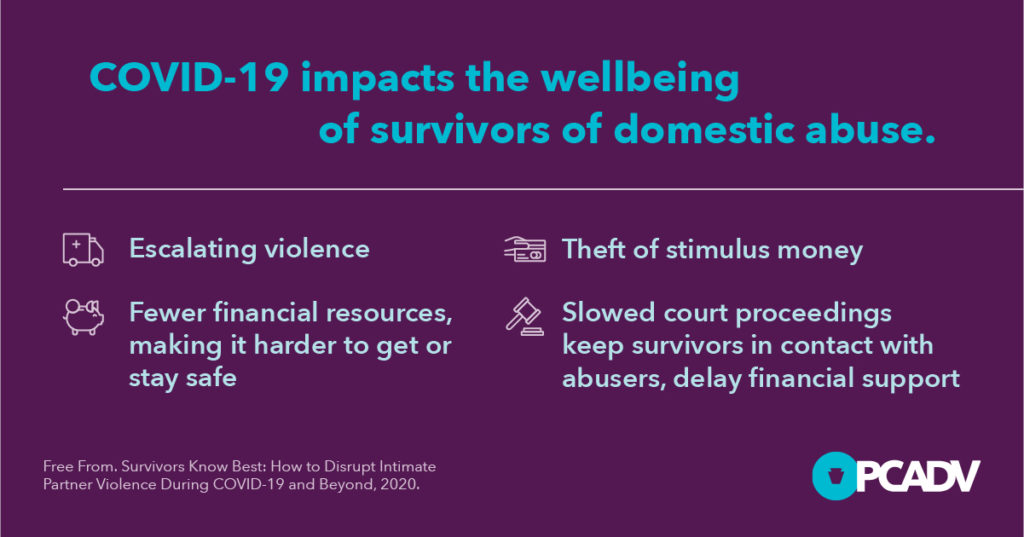Since mid-March, COVID-19 has presented a challenge to everyone worldwide, including in the United States, where more than 170,000 have lost their lives to the disease. While wearing a mask, social distancing, and staying home can help curb the spread of coronavirus, it presents a different challenge for the other epidemic happening.

Cases of domestic violence have been on the rise during the pandemic while people have been home more than they typically have prior to the lockdowns.
Intimate partner violence-related (IPV) homicides in the U.S. have increased during the COVID-19 pandemic, according to a study from the Equal Justice Initiative. In the same study, the United Nations is estimating that the outbreak is likely to reduce progress toward ending gender-based violence over the next decade by 30 percent.
In the study, which looks in-depth at the financial impact cause by IPV, more than 1,300 survivors of IPV were surveyed about the emotional, physical, mental, and financial impact of domestic violence.
During COVID-19, the survivors highlighted four ways that IPV has affected their wellbeing:
- Escalating violence
- Fewer financial resources, making it harder to get or stay safe
- Theft of stimulus checks and other COVID-19-related assistance
- Slowed court proceedings keeping survivors in contact with harm-doers and delaying potential income like child support
FreeFrom, whose mission, per their website, is to “dismantle the nexus between intimate partner violence and financial insecurity,” established the FreeFrom Safety Fund, which distributed more than $266,000 to 1,000 survivors across the country in the form of $250 cash grants, as of August 2020.
Survivors identified the following financial needs as a result of IPV during the pandemic:
- On average, $730 is needed immediately to stay safe
- The 1,100 survivors highlighted their top needs as being unrestricted cash (64%), utility bill relief (41%), credit and/or debit relief (35%), and safe employment (31%)
- Survivors spent their grants primarily on food (51%), household items (41%), and household utilities (41%)
In general, the average survivor reported that, according to the report, they have had $1,280 stolen from them by their abuser each month, and harm-doers incur $15,936 in coerced or fraudulent deb in survivors’ names each year.
During the pandemic, survivors have suffered increased financial abuse, on top of the aforementioned figures. The financial abuse incurred includes taking or withholding parts or all of stimulus checks, presenting another challenge for survivors.
“My abusive soon-to-be-ex-husband is withholding my half of the stimulus check as another way to control me,” an anonymous survivor said in the report. “Due to this, I am struggling to pay for fees that would allow me to move into a new place.”
COVID-19 brings other obstacles, too, that gives survivors no other choice but to return to their unsafe homes, with limited financial resources or limited places to go, in fear of contracting coronavirus. The alternative for many is sleeping in their cars.
“I’m struggling not to sleep in my car with my two children,” a survivor was quoted as saying in the report. “I don’t have anyone to turn to who hasn’t been affected by COVID-19. I am staying away [from my harm-doer], but worried that it will mean sleeping in my car with my babies indefinitely just to stay away from my abuser.”
This isn’t a COVID problem. IPV has been an issue long before COVID-19, but the pandemic has amplified the violence incurred by survivors. Survivors need help more than ever, and we must act to support them.